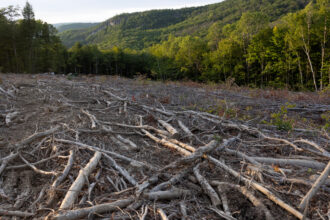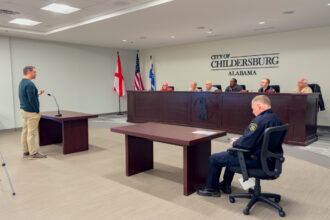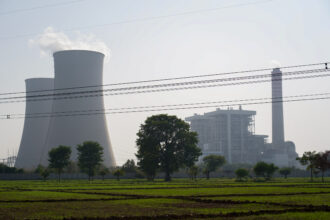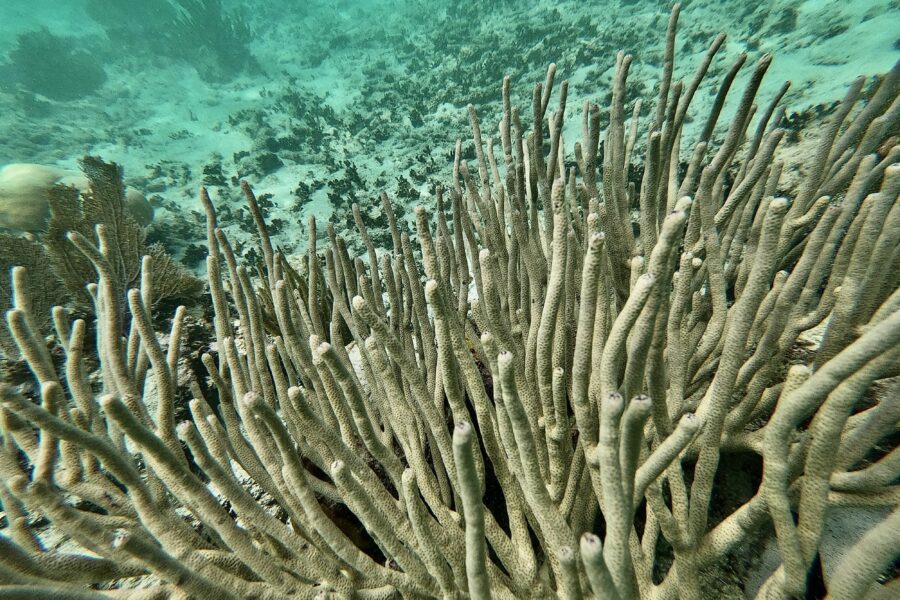More than 40 percent of the world’s permafrost—landscape covered in frozen soil—is at risk of thawing even if the world succeeds in limiting global warming to the international goal of 2 degrees Celsius, according to a new study.
Currently, permafrost covers about nearly 5.8 million square miles, and scientists found as much as 2.5 million square miles of that could thaw—about twice the area of Alaska, California and Texas combined—in a 2 degree Celsius scenario. Thawing would be more limited if warming can be held to 1.5 degrees Celsius, but could still affect 1.8 million square miles.
The new research was published Monday in the journal Nature Climate Change.
Permafrost contains vast amounts of carbon in the form of plants that died since the last ice age and have remained frozen rather than decomposing. When permafrost thaws, this long-trapped carbon is released into the atmosphere, further propelling future warming. A 2015 study estimated that the thawing permafrost could release up to 92 gigatons of carbon into the atmosphere by the century’s end.
This new study did not estimate the greenhouse gas emissions that would be released from the thawing, or how those emissions could then spur greater rates of permafrost loss in a vicious cycle.
Instead, the international team of scientists focused on how warming air temperatures would affect the extent of permafrost.
They said their calculations suggest a much more extensive loss than previously thought.
“These results alarm me because they predict even greater permafrost loss than shown in the global models for the 2°C warming target,” Kevin Schaefer, a researcher at the National Snow and Ice Data Center, wrote in an email to InsideClimate News. “Even hitting the global 2°C warming target implies major impacts to people and infrastructure in the Arctic.” Schaefer was not involved in the study.
Roughly 35 million people live in permafrost zones. Collapsing ground under roads and buildings present serious risks to those communities.
“The ability to more accurately assess permafrost loss can hopefully feed into a greater understanding of the impact of global warming and potentially inform global warming policy,” said study author Eleanor Burke in a statement. Burke is a permafrost scientist at the Met Office; she conducted this study with colleagues at the University of Exeter, University of Leeds, Stockholm University and University of Oslo.
About This Story
Perhaps you noticed: This story, like all the news we publish, is free to read. That’s because Inside Climate News is a 501c3 nonprofit organization. We do not charge a subscription fee, lock our news behind a paywall, or clutter our website with ads. We make our news on climate and the environment freely available to you and anyone who wants it.
That’s not all. We also share our news for free with scores of other media organizations around the country. Many of them can’t afford to do environmental journalism of their own. We’ve built bureaus from coast to coast to report local stories, collaborate with local newsrooms and co-publish articles so that this vital work is shared as widely as possible.
Two of us launched ICN in 2007. Six years later we earned a Pulitzer Prize for National Reporting, and now we run the oldest and largest dedicated climate newsroom in the nation. We tell the story in all its complexity. We hold polluters accountable. We expose environmental injustice. We debunk misinformation. We scrutinize solutions and inspire action.
Donations from readers like you fund every aspect of what we do. If you don’t already, will you support our ongoing work, our reporting on the biggest crisis facing our planet, and help us reach even more readers in more places?
Please take a moment to make a tax-deductible donation. Every one of them makes a difference.
Thank you,











